Description
Hosted on Ausha. See ausha.co/privacy-policy for more information.
Description
Hosted on Ausha. See ausha.co/privacy-policy for more information.
63 episodes
Season 1
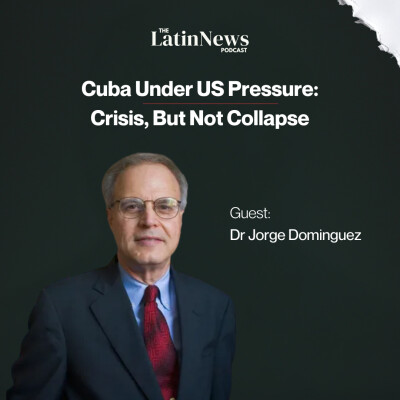

In this episode of The LatinNews Podcast, we assess Cuba’s deepening economic crisis under intensifying US pressure and ask a central question: does severe hardship necessarily lead to regime collapse? The grinding strategy targeting oil supplies has sharply reduced fuel availability, paralysed transport and worsened daily life on the island. Yet despite visible deterioration, public order remains intact and the Cuban state continues to function. Joining us is Dr Jorge Domínguez, retired professor at Harvard University and a leading expert on Cuba, who has just returned from Havana. Drawing on first-hand observations, he examines the gap between economic collapse narratives and the resilience of the Cuban state. We discuss the evolving nature of US pressure, the distinction between embargo and blockade, China and Russia’s limited roles, the political durability of the regime under President Miguel Díaz-Canel, and the possible short-term scenarios ahead. Hosted on Ausha. See ausha.co/privacy-policy for more information.
50min | Published on February 26, 2026
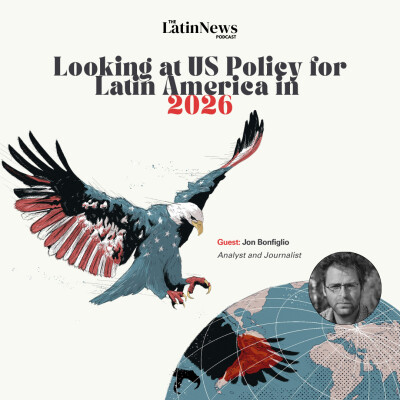

In a far-reaching conversation, this week on The LatinNews Podcast, we take a look ahead over 2026 and the possible implications and consequences of US policy towards Latin America. We ask, how does the US government justify working with a Venezuelan regime that so profoundly espouses the idea of 21st century socialism? Is there any move towards a restoration of democracy in Venezuela? How will President Trump's relationship with President Sheinbaum in Mexico develop and evolve? Will the US intervene in elections in Brazil, Colombia and Peru? And what of Cuba? Joining us this week is Jon Bonfiglio, an analyst and journalist based in Latin America and specialising in the region. Hosted on Ausha. See ausha.co/privacy-policy for more information.
39min | Published on February 10, 2026
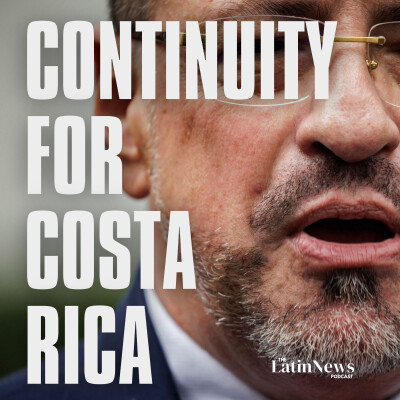

Costa Rica has long been the envy of its neighbors in Central America, enjoying economic stability and growth, dependency and security. As we approach the first round of Presidential elections on 1 February 2026, citizens now face the key question of whether they cast their vote for continuity or change? On The LatinNews Podcast this week, we sit down with Ronald Alfaro Redondo, Professor of Political Science at the University of Costa Rica and researcher at the State of the Nation program, to discuss the upcoming elections and the legacy of outgoing President Rodrigo Chaves. We talk about the strength of Costa Rica's democracy, the homicide crisis affecting the country, security, the state of the traditional political parties, foreign policy and relations with the United States and the environment. Hosted on Ausha. See ausha.co/privacy-policy for more information.
41min | Published on January 27, 2026
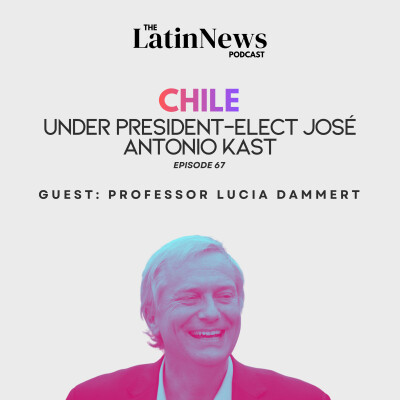

In our first episode of 2026, we take a look at Chile under president-elect José Antonio Kast who is due to be sworn into office in March 2026, marking a significant swing to the Right in the Andean nation. Joining us on The LatinNews Podcast this week is Lucia Dammert, Professor of International Relations at the Universidad de Santiago de Chile. We discuss how Kast won the elections so convincingly and what were the failures of President Gabriel Boric. Will Kast open lithium to private investors, what are his solutions to rising crime in Chile and will he carry out mass expulsions of immigrants, as promised during the campaign trail. Hosted on Ausha. See ausha.co/privacy-policy for more information.
35min | Published on January 13, 2026
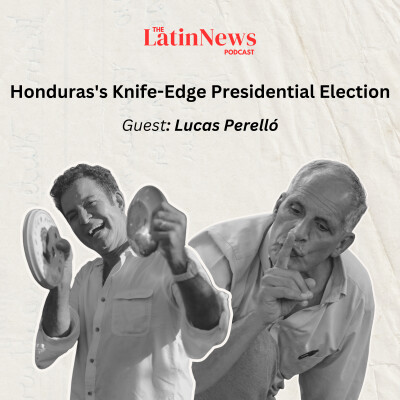

On The LatinNews Podcast this week, we take a look at the recent presidential election in Honduras and explore why the incumbent party performed so poorly, the probable outcomes from this neck and neck contest between Salvador Nasralla and Nasry Asfura, the role of President Trump and the pardon of former president Juan Orlando Hernández. Joining us is Lucas Perelló, Assistant Professor in the Department of Political Science at Florida Atlantic University. This episode was recorded before the final vote tally was completed but explores the topics of corruption, drug trafficking, migration, declining remittances and security issues that Honduras continues to face and that the new president will be obliged to address. Hosted on Ausha. See ausha.co/privacy-policy for more information.
45min | Published on December 16, 2025


Argentina's colourful President Javier Milei has been in power for two years and on The LatinNews Podcast this week, we take a look at his record so far and possible outcomes for the future after a successful midterm elections and significant public approval for his mandate. Joining us is Carlos Gervasoni, Associate Professor and chair of Political Science and International Studies at the Universidad Torcuato Di Tella. We discuss Milei's role as a stereotypical outsider, Argentina's disastrous macroeconomic legacy and the political and institutional weaknesses in the country in addition to Argentina's role as a spoiler at major multilateral negotiations in order to align itself with the Trump government in the United States. We ask, can President Milei solve Argentina's frustrating political economy pendulum and break the country's long tradition of institutional weakness? Hosted on Ausha. See ausha.co/privacy-policy for more information.
42min | Published on December 2, 2025
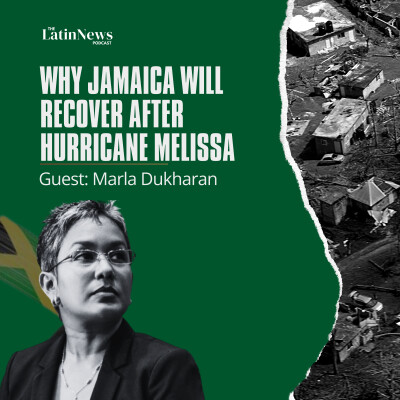

Over the past 12 years, Jamaica has faced up to challenging hardships in order to earn hard won gains in terms of ordering the economy, reducing the debt to GDP ratio from 150% to 60% and reducing unemployment to 3.3%. It was, in short, an incredible success story. And then in November 2025, the island was struck by Hurricane Melissa, leaving the country in tatters. The two main industries of tourism and agriculture have been severely damaged and the outlook appears bleak. However, on The LatinNews Podcast this week, we speak to Caribbean economist Marla Dukharan who believes, in spite of the tragedy that befell Jamaica, that there are reasons to remain positive, as the platform for growth and recovery remain intact for the island nation. For Dukharan, Jamaica's human capital, economic know-how, strong diaspora, resilience fund and CRIFF agreement will help the recovery. Questions remain, of course, as to how to mitigate climate events of this nature in the future and how to reform the nature of international aid donations. Hosted on Ausha. See ausha.co/privacy-policy for more information.
45min | Published on November 19, 2025
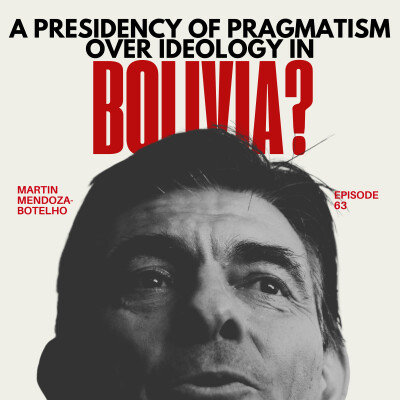

On The LatinNews Podcast this week, we look at the results of the recent presidential elections in Bolivia and the challenges ahead for president-elect Rodrigo Paz. Can this pragmatic leader respond creatively to tests including, a contracting economy, the current decline in the MAS party, the revisitation of diplomatic ties between the country and the United States, the Lithium question and regional relationships. In a far-reaching conversation with Martín Mendoza-Botelho, Professor of Political Science at Eastern Connecticut State University, we discuss Bolivia's immediate needs and how for the first time in a long time, the Paz presidency is one of pragmatism over ideology, for now. Hosted on Ausha. See ausha.co/privacy-policy for more information.
47min | Published on November 4, 2025
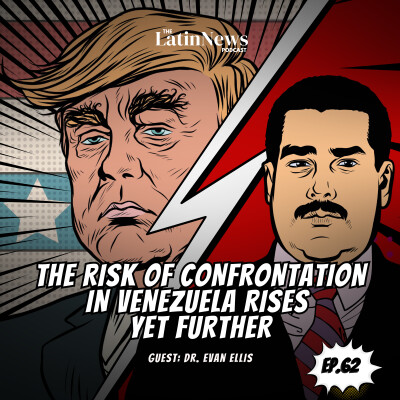

Why is there a build-up of the US armed forces in the southern Caribbean? According to Dr. Evan Ellis, Latin America Research Professor and General Douglas Macarthur Research Chair at the U.S. Army War College Strategic Studies Institute, our guest on The LatinNews Podcast this week, this is about putting an end to a significant strategic threat to U.S. interests that are threatening the core of things that President Trump said he was going to defend, issues of migration and issues of drugs. For the Venezuelan people, the importance of restoring Venezuelan democracy, and it’s likely that Venezuelans have never had a better opportunity than Edmundo Gonzalez and Maria Corina Machado to reunite a deeply divided country. How can this regime change take place? The sense is that the way that the current administration is looking at this challenge is that it's more through the lens of a threat that is generating harm against the United States. Drugs are the first little piece of that, but it's about those harms more than about democracy. Hosted on Ausha. See ausha.co/privacy-policy for more information.
54min | Published on October 21, 2025
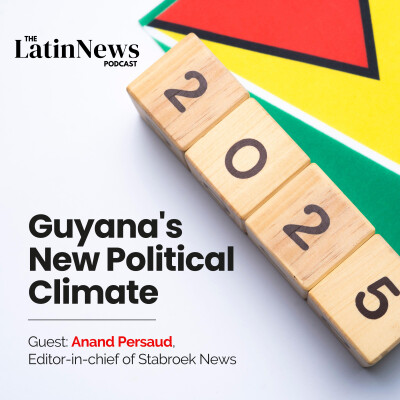

Newly re-elected President Irfaan Ali will have to move fast on promises to convert his country's sizable oil income into tangible benefits for Guyana's poor, beyond huge prestige infrastructure projects. If President Ali is unable to capitalize and create a coherent development plan and enable a reorientation of Guyana's economy, there will be cause for concern, not least from Azruddin Mohamed, leader of the new WIN (the recently formed, We Invest in Nationhood party) who pulled in 25 per cent of the vote in the general election. Guyana’s offshore oil fields, discovered by ExxonMobil in 2015, have transformed the country into a burgeoning energy powerhouse. The country, which is estimated to have the world’s highest crude oil reserves per capita, has been one of the fastest growing economies globally since oil production began in 2019 and yet the wealth disparity is starkly evident. This week on The LatinNews Podcast, we welcome back Anand Persaud, Editor-in-chief of Stabroek News, to discuss the challenges facing President Ali and Guyana including, the Dutch Disease, massive infrastructure expenditure, the on-going dispute with Venezuela over the Essequibo, the US military build-up in the southern Caribbean and climate change. Hosted on Ausha. See ausha.co/privacy-policy for more information.
47min | Published on October 7, 2025
Description
Hosted on Ausha. See ausha.co/privacy-policy for more information.
63 episodes
Season 1


In this episode of The LatinNews Podcast, we assess Cuba’s deepening economic crisis under intensifying US pressure and ask a central question: does severe hardship necessarily lead to regime collapse? The grinding strategy targeting oil supplies has sharply reduced fuel availability, paralysed transport and worsened daily life on the island. Yet despite visible deterioration, public order remains intact and the Cuban state continues to function. Joining us is Dr Jorge Domínguez, retired professor at Harvard University and a leading expert on Cuba, who has just returned from Havana. Drawing on first-hand observations, he examines the gap between economic collapse narratives and the resilience of the Cuban state. We discuss the evolving nature of US pressure, the distinction between embargo and blockade, China and Russia’s limited roles, the political durability of the regime under President Miguel Díaz-Canel, and the possible short-term scenarios ahead. Hosted on Ausha. See ausha.co/privacy-policy for more information.
50min | Published on February 26, 2026


In a far-reaching conversation, this week on The LatinNews Podcast, we take a look ahead over 2026 and the possible implications and consequences of US policy towards Latin America. We ask, how does the US government justify working with a Venezuelan regime that so profoundly espouses the idea of 21st century socialism? Is there any move towards a restoration of democracy in Venezuela? How will President Trump's relationship with President Sheinbaum in Mexico develop and evolve? Will the US intervene in elections in Brazil, Colombia and Peru? And what of Cuba? Joining us this week is Jon Bonfiglio, an analyst and journalist based in Latin America and specialising in the region. Hosted on Ausha. See ausha.co/privacy-policy for more information.
39min | Published on February 10, 2026


Costa Rica has long been the envy of its neighbors in Central America, enjoying economic stability and growth, dependency and security. As we approach the first round of Presidential elections on 1 February 2026, citizens now face the key question of whether they cast their vote for continuity or change? On The LatinNews Podcast this week, we sit down with Ronald Alfaro Redondo, Professor of Political Science at the University of Costa Rica and researcher at the State of the Nation program, to discuss the upcoming elections and the legacy of outgoing President Rodrigo Chaves. We talk about the strength of Costa Rica's democracy, the homicide crisis affecting the country, security, the state of the traditional political parties, foreign policy and relations with the United States and the environment. Hosted on Ausha. See ausha.co/privacy-policy for more information.
41min | Published on January 27, 2026


In our first episode of 2026, we take a look at Chile under president-elect José Antonio Kast who is due to be sworn into office in March 2026, marking a significant swing to the Right in the Andean nation. Joining us on The LatinNews Podcast this week is Lucia Dammert, Professor of International Relations at the Universidad de Santiago de Chile. We discuss how Kast won the elections so convincingly and what were the failures of President Gabriel Boric. Will Kast open lithium to private investors, what are his solutions to rising crime in Chile and will he carry out mass expulsions of immigrants, as promised during the campaign trail. Hosted on Ausha. See ausha.co/privacy-policy for more information.
35min | Published on January 13, 2026


On The LatinNews Podcast this week, we take a look at the recent presidential election in Honduras and explore why the incumbent party performed so poorly, the probable outcomes from this neck and neck contest between Salvador Nasralla and Nasry Asfura, the role of President Trump and the pardon of former president Juan Orlando Hernández. Joining us is Lucas Perelló, Assistant Professor in the Department of Political Science at Florida Atlantic University. This episode was recorded before the final vote tally was completed but explores the topics of corruption, drug trafficking, migration, declining remittances and security issues that Honduras continues to face and that the new president will be obliged to address. Hosted on Ausha. See ausha.co/privacy-policy for more information.
45min | Published on December 16, 2025


Argentina's colourful President Javier Milei has been in power for two years and on The LatinNews Podcast this week, we take a look at his record so far and possible outcomes for the future after a successful midterm elections and significant public approval for his mandate. Joining us is Carlos Gervasoni, Associate Professor and chair of Political Science and International Studies at the Universidad Torcuato Di Tella. We discuss Milei's role as a stereotypical outsider, Argentina's disastrous macroeconomic legacy and the political and institutional weaknesses in the country in addition to Argentina's role as a spoiler at major multilateral negotiations in order to align itself with the Trump government in the United States. We ask, can President Milei solve Argentina's frustrating political economy pendulum and break the country's long tradition of institutional weakness? Hosted on Ausha. See ausha.co/privacy-policy for more information.
42min | Published on December 2, 2025


Over the past 12 years, Jamaica has faced up to challenging hardships in order to earn hard won gains in terms of ordering the economy, reducing the debt to GDP ratio from 150% to 60% and reducing unemployment to 3.3%. It was, in short, an incredible success story. And then in November 2025, the island was struck by Hurricane Melissa, leaving the country in tatters. The two main industries of tourism and agriculture have been severely damaged and the outlook appears bleak. However, on The LatinNews Podcast this week, we speak to Caribbean economist Marla Dukharan who believes, in spite of the tragedy that befell Jamaica, that there are reasons to remain positive, as the platform for growth and recovery remain intact for the island nation. For Dukharan, Jamaica's human capital, economic know-how, strong diaspora, resilience fund and CRIFF agreement will help the recovery. Questions remain, of course, as to how to mitigate climate events of this nature in the future and how to reform the nature of international aid donations. Hosted on Ausha. See ausha.co/privacy-policy for more information.
45min | Published on November 19, 2025


On The LatinNews Podcast this week, we look at the results of the recent presidential elections in Bolivia and the challenges ahead for president-elect Rodrigo Paz. Can this pragmatic leader respond creatively to tests including, a contracting economy, the current decline in the MAS party, the revisitation of diplomatic ties between the country and the United States, the Lithium question and regional relationships. In a far-reaching conversation with Martín Mendoza-Botelho, Professor of Political Science at Eastern Connecticut State University, we discuss Bolivia's immediate needs and how for the first time in a long time, the Paz presidency is one of pragmatism over ideology, for now. Hosted on Ausha. See ausha.co/privacy-policy for more information.
47min | Published on November 4, 2025


Why is there a build-up of the US armed forces in the southern Caribbean? According to Dr. Evan Ellis, Latin America Research Professor and General Douglas Macarthur Research Chair at the U.S. Army War College Strategic Studies Institute, our guest on The LatinNews Podcast this week, this is about putting an end to a significant strategic threat to U.S. interests that are threatening the core of things that President Trump said he was going to defend, issues of migration and issues of drugs. For the Venezuelan people, the importance of restoring Venezuelan democracy, and it’s likely that Venezuelans have never had a better opportunity than Edmundo Gonzalez and Maria Corina Machado to reunite a deeply divided country. How can this regime change take place? The sense is that the way that the current administration is looking at this challenge is that it's more through the lens of a threat that is generating harm against the United States. Drugs are the first little piece of that, but it's about those harms more than about democracy. Hosted on Ausha. See ausha.co/privacy-policy for more information.
54min | Published on October 21, 2025


Newly re-elected President Irfaan Ali will have to move fast on promises to convert his country's sizable oil income into tangible benefits for Guyana's poor, beyond huge prestige infrastructure projects. If President Ali is unable to capitalize and create a coherent development plan and enable a reorientation of Guyana's economy, there will be cause for concern, not least from Azruddin Mohamed, leader of the new WIN (the recently formed, We Invest in Nationhood party) who pulled in 25 per cent of the vote in the general election. Guyana’s offshore oil fields, discovered by ExxonMobil in 2015, have transformed the country into a burgeoning energy powerhouse. The country, which is estimated to have the world’s highest crude oil reserves per capita, has been one of the fastest growing economies globally since oil production began in 2019 and yet the wealth disparity is starkly evident. This week on The LatinNews Podcast, we welcome back Anand Persaud, Editor-in-chief of Stabroek News, to discuss the challenges facing President Ali and Guyana including, the Dutch Disease, massive infrastructure expenditure, the on-going dispute with Venezuela over the Essequibo, the US military build-up in the southern Caribbean and climate change. Hosted on Ausha. See ausha.co/privacy-policy for more information.
47min | Published on October 7, 2025